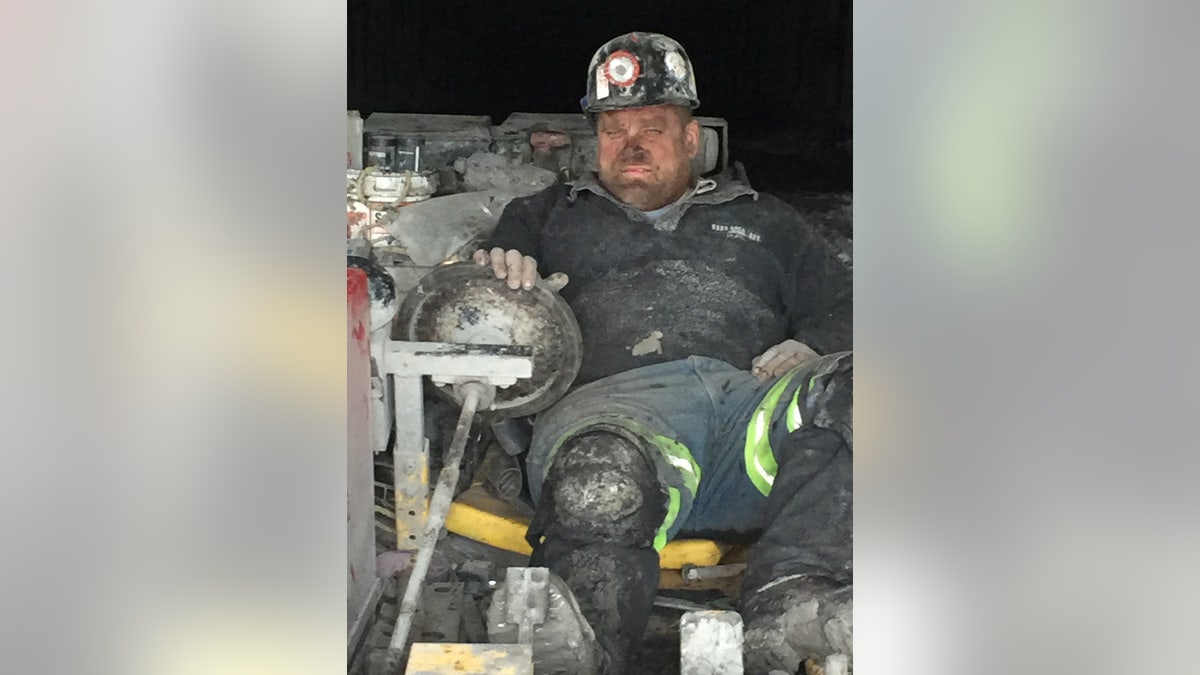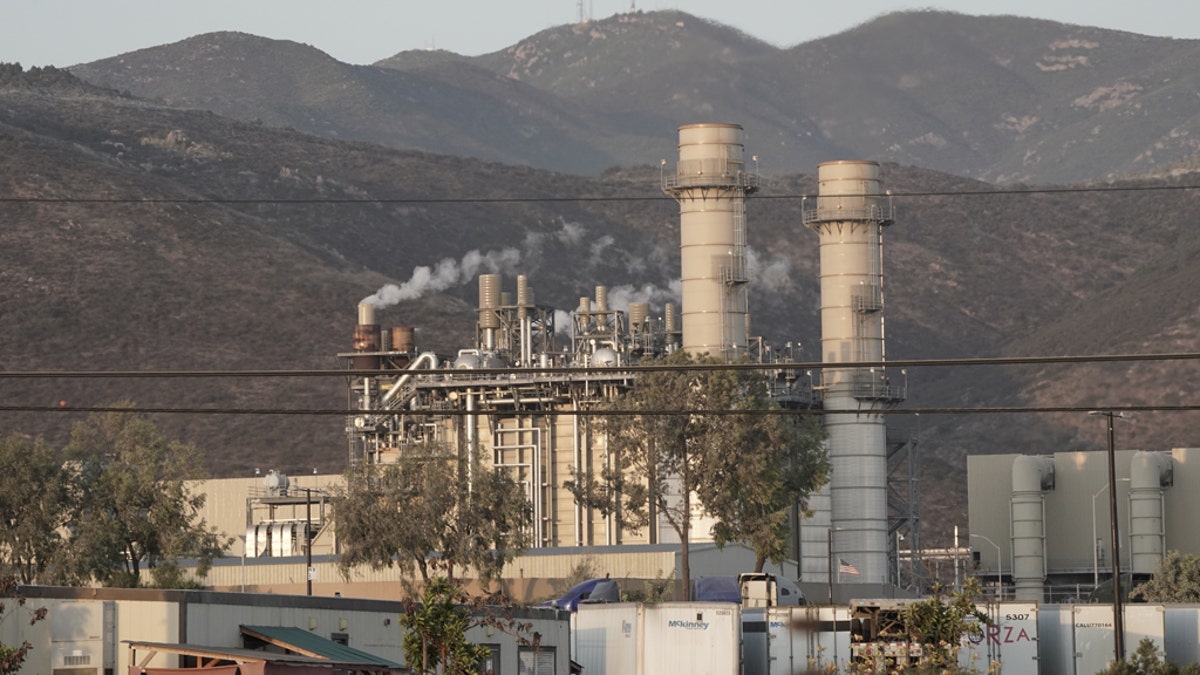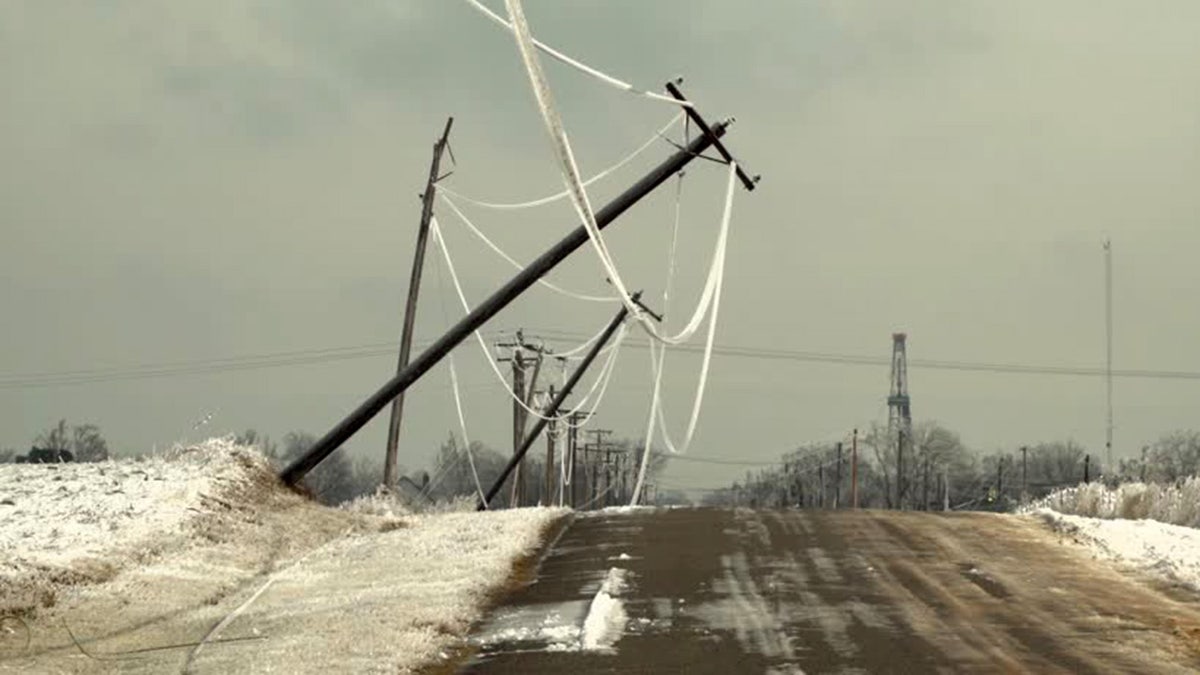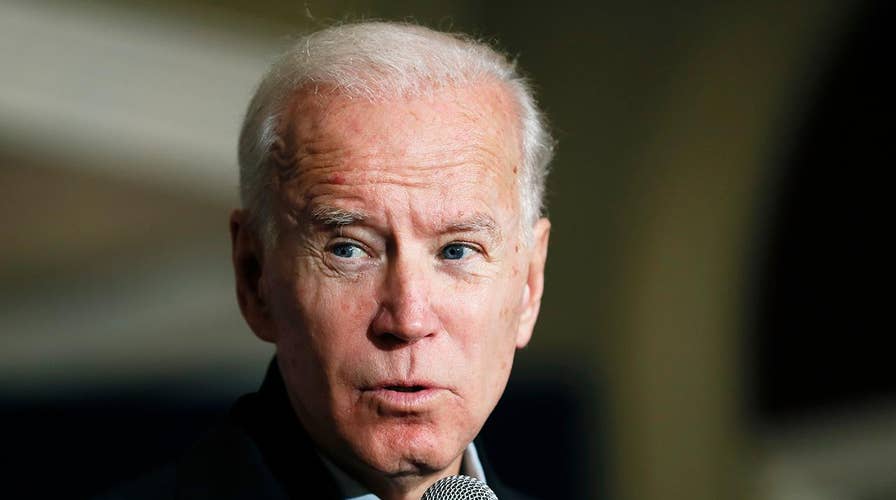Biden tells coal workers to learn code for future jobs
Reaction from West Virginia Coal Association senior vice president Chris Hamilton.
In the tight-knit, Shelocta, Pa., coal mining community, American flags flap gently in the fall breeze; children peddle bicycles through the wide-open streets set against the neat wooden homesteads and plots of green grass dusted in fall leaves -- it is the essence of suburban American. But there is a lingering veil of uncertainty.
Tuesday's Presidential vote could bring about significant changes for the strong and proud, who for generations have lurched far below the earth's surface into the sooty pleats of the underground to extract vital sources of energy.
"The mine is the lifeblood of our entire town; 85% of our community depends on keeping this going – right down to the car dealerships and convenient stores which won't survive if the coal mine goes," Todd Reesman, 49, an electrician for Rosebud at the nearby Crooked Creek mine, told Fox News.
BIDEN CAMPAIGN CONSIDERS 'CLIMATE CZAR' POSITION IN WHITE HOUSE: REPORT
Born and raised in the small coal community – lured into the mining world by the promise of good benefits and a respectable income – Reedman's now 28-year-old son also followed his footsteps. But what is to become of both their futures is yet to be seen.

Todd Reesman, 49, an electrician for Rosebud at the nearby Crooked Creek mine (Courtesy Todd Reesman)
In the final presidential debate this month, Democratic candidate Joe Biden called for a "transition" away from the long-running staples of oil and gas and has put climate change at the center of his campaign agenda.
For many in the coal sector, this is code for suicide in an industry already struggling to stay afloat.
According to Conor Bernstein, spokesperson for the National Mining Association (NMA), under the Obama administration, coal employment plummeted from 134,000 in 2008, when President Obama took office, to 81,000 when he left in 2016 – nearly a 40 percent decline.
"Until the pandemic hit this year, this administration stopped those declines and had even begun to reverse them. Stopping such a steep and rapid decline is significant in itself and shouldn't be overlooked," he said. "This administration has worked to address eight years of regulatory overreach to level the playing field not just for coal but a variety of industries. The result has been a return of competition in the energy industry – although we still have a long way to go thanks to outsized subsidies for renewables."

The Otay Mesa Energy Center, a natural-gas fired, air-cooled power plant, in Otay Mesa, California, U.S., on Monday, Aug. 17, 2020. The Gateway Energy Storage project arrives as an unrelenting heatwave has strained CaliforniaÕs electric grid, prompting rolling blackouts that have plunged millions into darkness in the past week. Photographer: Bing Guan/Bloomberg via Getty Images
Indeed, that brings with it little sense of security for the tens of thousands of Americans employed by the coal industry. Biden, in keeping with his stance as vice president in the Obama administration, has pledged to end the Keystone XL pipeline project. While he is yet to take a public position concerning the Dakota Access pipeline, his running mate Sen. Kamala Harris has previously encouraged it to be shuttered.
BUTTIGIEG DEFENDS BIDEN, CLAIMS DEMS 'WOULD HAVE CHOSEN SOMEBODY ELSE' IF THEY WANTED FRACKING BAN
From Reesman's lens, his small town is still struggling in the wake of the Obama administration's policies and can't possibly endure further blows. He said his mining company was forced to shutter around half a dozen mines of "pristine quality coal" and that the number of employees overall has fallen from about 1400 to 700.
"Some have had to take jobs out of state, or working two jobs to make up for the loss of their health benefits," he continued. "Those policies hurt us a lot, especially the young people in the 20-30 age range, who were really only just getting started."
Analysts anticipate that Biden's focus on renewables development – with aims to pour as much as $1.7 trillion into renewable power plans – and his vow to roll back the easing of emission restrictions put in place by the Trump team will further hasten the decline of coal production in the U.S and compel consumers toward other means of power generation.
BIDEN GRILLED ON 'TRANSITION' AWAY FROM OIL AND GAS COMMENT IN PENNSYLVANIA TV INTERVIEWS
Biden's heralding of a "transition" has, however, sent a ripple through such small mining communities in recent weeks – reminiscent of Hillary Clinton's 2016 avowal to "put a lot of coal miners and coal companies out of business" in a push to propel the U.S deeper into the folds of clean energy. In recent days nonetheless, Biden has purported to walk back the remarks – insisting that the industry "isn't going to go away."
"The Biden campaign has announced its intention to pursue net-zero emissions for electricity generation by 2035," Bernstein surmised. "That's an aggressive target that seems well out of line with what's possible while maintaining affordable, reliable power. With the affordability of energy more important than ever as we eye economic recovery, the balance and affordability provided by coal generation shouldn't be overlooked by any candidate."
And for the likes of Reesman, frustration stems from far-flung city folks who, in his words, still envision miners riding around on donkeys with picks and shovels.
"Our mining today is really high-tech, and safety is a big thing," he stressed. "I think a lot of people think electricity just comes from a light switch; they don't understand what is behind it. Sure, you can probably support a household on solar and wind, but any kind of major industry, you just can't do it."
Moreover, Bernstein pointed to California as a worrisome example that could span the country amid the further elimination of coal.
"California's rolling blackouts this summer were a stark reminder of the immense challenges faced by moving away from dispatchable power to greater reliance on intermittent sources of energy," he said. "And California's aggressive pivot to renewable sources of power has seen electricity prices steadily climb, rising far faster than in the rest of the country."
TRUMP HAMMERS BIDEN ON FRACKING STANCE DURING PA RALLIES
Between 2013 and 2018, electricity rates in California jumped 25%. California's electricity costs 50% more per kilowatt-hour than the national average.
According to the U.S. Energy Information Administration (EIA), just five states accounted for about 71% of the entire country's coal production in 2019. In the lead is Wyoming at 39.2%, followed by West Virginia at 13.2%, Pennsylvania at 7.1%, Illinois at 6.5%, and Kentucky at 5.1%.
However, next week's outcome could have far-reaching consequences well beyond these small crevices of the country. Tuesday's results could also dramatically alter the way the entire country consumes energy – its costs, its delivery, and the kinds of vehicles people nationwide opt to drive. Electric cars could soon become the norm, and homes could be adorned with wind and solar sources.

Photo credit: Getty
But for Biden backers and environmentalists, the conversion away from coal can't come soon enough. For years, scientists have beaten the drum that the "cheap fuel source" has led to a trove of troubles from deforestation required to clear lands in preparation for mining and the releasing toxic minerals into the soil and water supply to the dangerous discharge of methane, sulfur, and nitrogen into the atmosphere, as well as the residue of coal dust that can trigger respiratory problems in humans.
In sharp contrast to his counterpart, Trump has maintained unequivocal backing of the age-old industrial standard. As promised in his 2016 campaign, the reigning president over the past four years has sought to reverse the "burdensome restrictions" slapped on coal mining by his predecessor, including the reduction of regulations that limit coal production.
Just four days into his term, Trump rejuvenated the Keystone XL and Dakota Access pipeline projects rebuffed by Obama and tore up a moratorium on new leases for coal production.
Nonetheless, even with Trump's vocal support, it has been on a fast fall in recent years – now supplying just 23% of the nation's electricity, down from 50% a decade ago. After holding relatively steady through his few first few years in the White House, the industry declined a further 9% in 2019 alone – slipping 4.2% quarter-to-quarter in the last part of last year according to an S&P Global Market Intelligence analysis of federal data – amounting to more job losses and plant closures, as demand atrophies.
But the reasons for coal's tumble, many contend, is that it is still suffering from the Obama-led "war," which entailed the imposition of stringent environmental regulations that made coal plants considerably more expensive to run. For one, the 2012 Mercury and Air Toxic Standards confined emissions from plants, and three years later, the Clean Power Plan endeavored to further halt carbon emissions.
"Trump rolled back all the Obama anti-coal regulation. But the coal industry continues to struggle amid the Obama war on coal," contended Steve Milloy, a former Trump/Pence EPA Transition Team Member, and Founder & Publisher of JunkScience.com. "Faced with what seemed like a permanent war on coal, wanting to be politically correct and utility economics, utilities began to switch out of coal and into natural gas. These decisions by utilities are driving the contraction of the coal industry, not government regulations."

An ice storm has left over 300,000 customers without power in Oklahoma. (Oklahoma City Police Department)
Benjamin Zycher, a resident scholar at the American Enterprise Institute (AEI), concurred that the coal sector continues to battle against the competition of natural gas and will "continue to experience severe pressures."
"Whether it will 'decline' or merely grow more slowly than otherwise would be the case is hard to know," he asserted. "Because Biden has adopted the climate agenda of the environmental left – 'existential threat,' etc. – his 'net-zero' policy proposal for the power sector by 2035 would drive substantially greater adverse effects for the coal sector than Trump's skepticism about climate policies."
And while some experts underscore that without federal impediments, coal can continue for at least another three decades – bolstering another generation of miners – while others contend the decimation of the "dirtiest fossil fuel" merely is inevitable and will only happen faster under a Biden team than a Trump one.
Yet Reesman – and much of his neighborhood – remain hopeful that a second Trump term will turn things around, insisting that will the right support from the top, coal can still be king for a long time to come.
CLICK HERE TO GET THE FOX NEWS APP
"There is a lot of worries if Biden gets in – even my mother-in-law who just turned 73 registered for the first time in her life to vote this year," he added. "We know what will happen if there is over-regulation, our outsourcing to China and other countries."











































